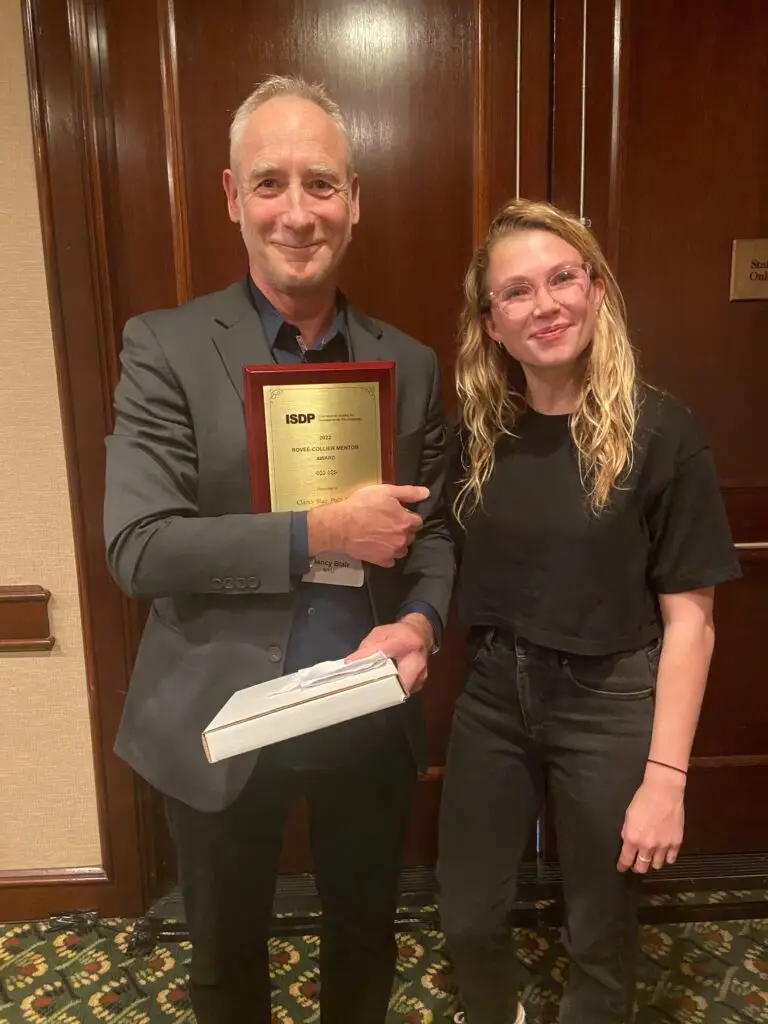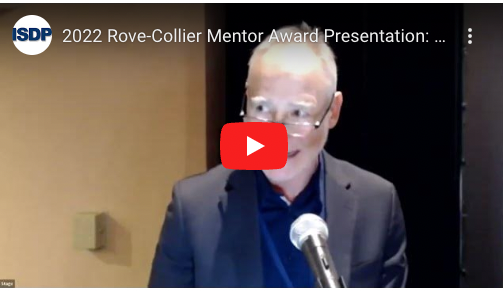

In Memoriam: Celebrating Clancy Blair, by Natalie Brito – NYU colleague & collaborator and Annie Aitken – NYU graduate student (2016-2022)
The developmental psychology community mourns the loss of Dr. Clancy Blair, a scholar whose groundbreaking research and compassionate mentorship have left an indelible mark on our field. His prolific career began as a professor at Penn State before joining New York University in 2008. Clancy’s research centered on the development of self-regulation and executive functions in young children, emphasizing their pivotal role in school readiness and academic success. His studies demonstrated how early life experiences and home environments shape these critical skills, with a particular focus on the role of stress physiology. This work contributed significant insight into how diverse environmental contexts, including those associated with socioeconomic challenges, can shape cognitive and social-emotional development across childhood.
Two of Clancy’s most influential publications exemplify the impact of his research. In his 2002 manuscript in American Psychologist, Clancy proposed a neurobiological model of self-regulation development, emphasizing the critical role of emotionality in shaping cognitive processes essential for school readiness. This model underscored the plasticity of early development and the importance of supportive environments, amplifying the need for early educational policies and interventions. In their 2012 Developmental Psychology paper, Clancy and Cybele Raver integrated evolutionary and developmental perspectives to explore how self-regulation emerges through dynamic interactions between genes, environments, and stress physiology. This probabilistic epigenetic model emphasizes how early caregiving and adversity shape stress response systems and developmental trajectories. Calling attention to the adaptability of self-regulation, they presented reactive behaviors as contextually adaptive in high-stress environments but recalibrated in supportive ones. This perspective broadened the field’s understanding of self-regulation, acknowledging its challenges and benefits across ecological contexts.
Clancy’s achievements were remarkable. He authored over 200 peer-reviewed articles and received numerous awards and grants. However, beyond his scholarly contributions, he will be remembered most for his kindness, mentorship, and the profound impact he had on those fortunate enough to work with him. Alongside his collaborator and spouse Cybele Raver, Clancy co-founded the Neuroscience and Education Lab at NYU – a vibrant, inclusive space that fostered meaningful connections among its members. The relationships formed within Clancy’s lab extended far beyond its walls, with many members becoming lifelong friends and professional colleagues. Clancy’s collaborative and thoughtful approach to mentorship enabled his students to thrive, and his passion for science was both inspiring and contagious. He believed deeply in each of his students, demonstrating this with genuine smiles, enthusiastic encouragement, and thought-provoking conversations. In 2022, Clancy’s exceptional mentorship was recognized with the International Society for Developmental Psychobiology Award for Outstanding Mentorship.
As we reflect on Clancy’s life and career, it is impossible not to be struck by the breadth and depth of his contributions. His pioneering research transformed our understanding of the interplay between cognitive and emotional development, while his mentorship inspired countless young scientists. Clancy is remembered among his mentees, staff, and peers for his sharp wit and unmistakably cool, punk-rock style. He championed bold ideas, demonstrated kindness within collaborations, and believed in the transformative power of research to make a difference. His unwavering commitment to social justice was integral to his work. Through public panels, community outreach, and dissemination of his research, Clancy used science as a force for good, leaving a lasting legacy of socially conscious research. As we continue the work he began, we do so with profound gratitude for his guidance and a determination to uphold his spirit of discovery, advocacy, and compassion.

